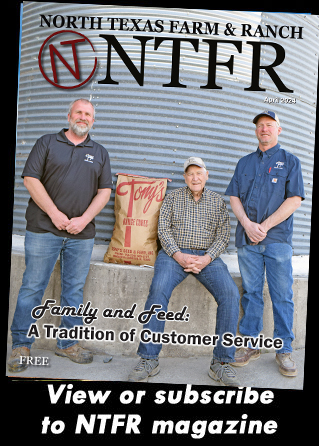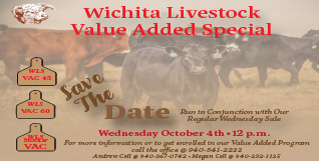HOME
[AgriLife Today] Annual Red River Crops Conference set for Jan. 24-25
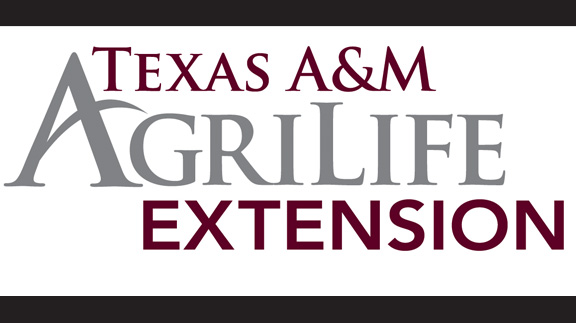
By: Kay Ledbetter
Writer: Kay Ledbetter, 806-677-5608, [email protected]
Contacts: Dr. Emi Kimura, 940-552-9941 ext. 233, [email protected]
CHILDRESS – The fourth annual Red River Crops Conference is set for Jan. 24-25 at the Childress Event Center, 1100 N.W. 7th St., Childress.
“Planning for Success – Crop Production Information Designed for Southwest Oklahoma and the Texas Rolling Plains,” will be hosted by the Texas A&M AgriLife Extension Service and Oklahoma State University Cooperative Extension.
The annual conference alternates between Oklahoma and Texas and addresses special agricultural production circumstances in the Red River region in both states, according to Dr. Emi Kimura, AgriLife Extension agronomist in Vernon.
There will be a $25 per person registration fee, and preregistration is encouraged. Make checks payable to the Red River Crops Conference. For a copy of the registration form, go to http://agrilife.org/redrivercropsconference/ or contact any county Extension office in Texas or Oklahoma.
Registration forms should be mailed to Texas A&M AgriLife Extension Service, Childress County Courthouse, Box 9, Childress, Texas 79201.
Continuing education units will be offered, including 12 for certified crop advisors, six for Texas Department of Agriculture private pesticide applicators and four from the Oklahoma Department of Agriculture, Food and Forestry.
Both days will begin with registration at 8 a.m. and conclude at 4 p.m. Cotton will be featured on Jan. 24 and in-season and summer crops will be featured on Jan. 25.
The following are topics and speakers for the Jan. 24 Cotton Day:
– National Cotton Council Update – Dr. Jody Campiche, National Cotton Council director, economics and policy analysis, Memphis, Tennessee.
– Cotton Market Update and Outlook – Dr. John Robinson, AgriLife Extension economist cotton marketing, College Station.
– Cotton Weed Control and Herbicide Update – Dr. Todd Baughman, Oklahoma State University Institute for Agricultural Biosciences program support leader, Ardmore, Oklahoma.
– Bacterial Blight Management – Dr. Jason Woodward, AgriLife Extension/Texas A&M associate department head for plant pathology and microbiology, Lubbock.
– Texas and Oklahoma Cotton Genetic Performance and Variety Update – Dr. Gaylon Morgan AgriLife Extension agronomist-cotton, College Station, and Dr. Randy Boman, Oklahoma State University Southwest Research and Extension Center research director and cotton Extension program leader, Altus, Oklahoma.
– Cotton Insect Management – Dr. David Kerns, Louisiana State University Jack Hamilton Regents Chair in cotton production, Winnsboro, Louisiana.
– Crop Profitability Evaluation and Spreadsheet Analyzer, Dr. Jackie Smith, AgriLife Extension economist-management, Lubbock.
These topics and speakers are scheduled for the Jan. 25 In-Season and Summer Crops Day:
– Grain and Livestock Market Update – Dr. Mark Welch, AgriLife Extension economist-grain marketing, College Station.
– Permanent Pasture Production and Management – Dr. Larry Redmon, AgriLife Extension Regents Professor and associate department head for soil and crops sciences, College Station.
– Canola Production and Management – Dr. Josh Lofton, Oklahoma Cooperative Extension Service assistant professor and cropping systems specialist, Stillwater, Oklahoma.
– Mid-term Review of the 2014 Farm Bill – Dr. Joe Outlaw, AgriLife Extension economist, College Station.
– Annual Forage Production and Management – Kimura and Gary Strickland, Oklahoma Cooperative Extension Service dryland cropping systems specialist, Altus, Oklahoma.
– Grain Sorghum Production and Management, Dr. Jourdan Bell, AgriLife Extension agronomist, Amarillo.
– Agronomic and Economic Evaluation of Cover Crops, Dr. Paul DeLaune, Texas A&M AgriLife Research environmental soil science, Vernon.
-30-
Find more stories, photos, videos and audio at http://today.agrilife.org
HOME
Farm and Ranch Injuries
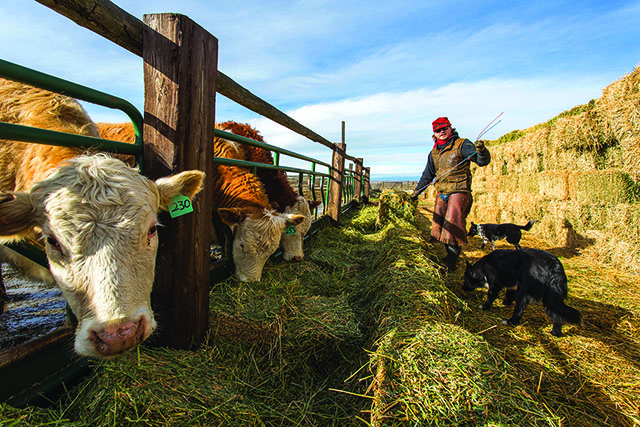
By Barry Whitworth, DVM
In January, I attended the Oklahoma Veterinary Conference. While waiting for one of the sessions to start, a classmate of mine commented how many of the attendees walk with a limp, used a cane, and/or have damaged hands. We all agreed that working with animals is hard on the body. In general, anything associated with farming and ranching is dangerous.
Most farmers and ranchers know that agriculture is a dangerous occupation. According to United States Bureau of Statistics, workers involved in agriculture, forestry, and fishing had the highest occupational fatality rate in 2022. The fatality rate of 23.5 per 100,000 full-time equivalent (FTE) workers for this group is much higher when compared to the overall occupation fatality rate of 3.7 per 100,000 FTE. Most of the agriculture-related fatalities are associated with transportation, such as tractor overturns, and vehicle crashes, but a fair number involve livestock.
To read more, pick up a copy of the March issue of NTFR magazine. To subscribe by mail, call 940-872-5922.
HOME
Jesses Jewelz

By Jesse Kader
Comfy and keep it western. That’s the name of the game this month. It’s hot and who wants clingy clothing? This jumpsuit is perfectly comfortable and relaxed without forfeiting the fashion. Dress it up or keep it casual. See this and more at www.jessesjewelz.com.
HOME
Noble Research Institute Expands New Program Offering Farmers and Ranchers the Essentials of Regenerative Ranch Management
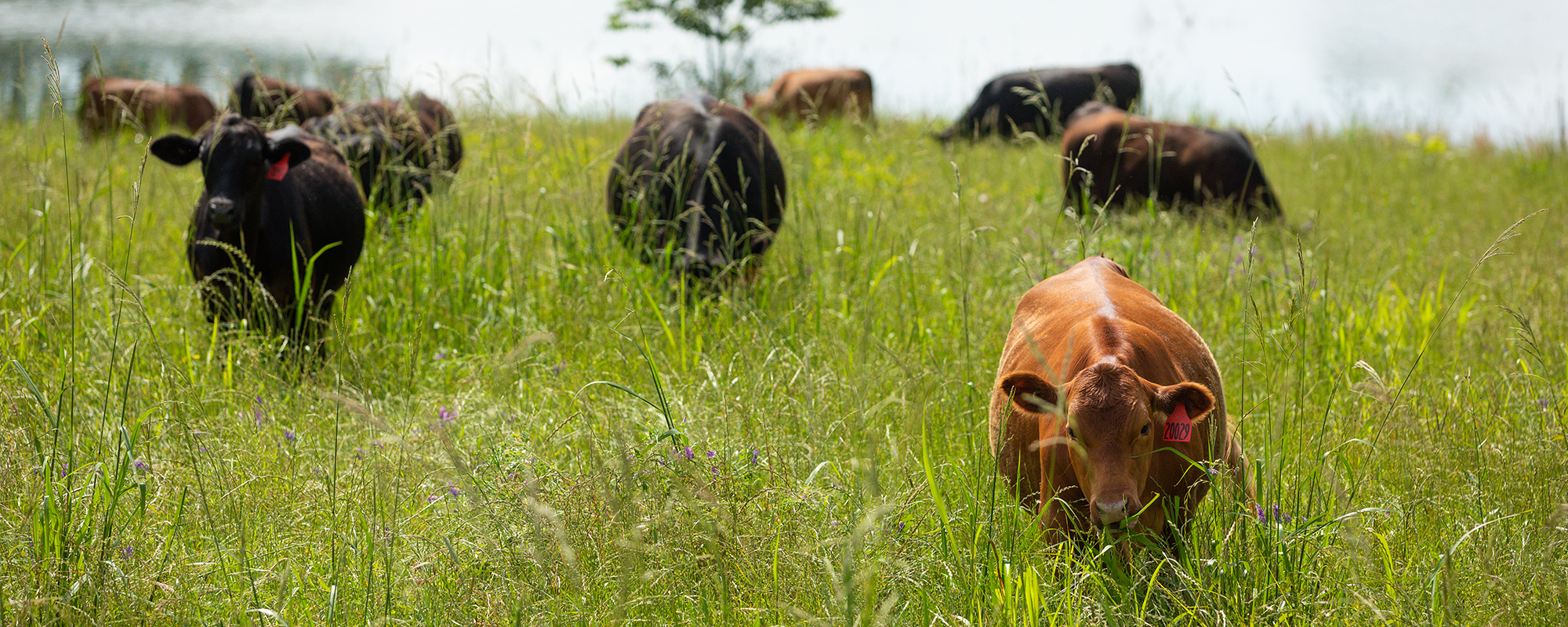
The educational program has been expanded to three new locations, empowering ranchers and farmers to monitor and improve the health of their land, livestock and livelihood through regenerative principles.
ARDMORE, OK–September 12, 2023 – Noble Research Institute announced the expansion of Essentials of Regenerative Ranching, a new educational program designed to help ranchers enhance and restore the land, making it more resilient and reaching livestock grazing goals through regenerative management. Essentials of Regenerative Ranching provides producers with practical tools, hands-on experience and guidance to make data-driven decisions to decrease costs and improve profit.
The Essentials of Regenerative Ranching course has been expanded to three new locations in Texas and Oklahoma. Registration is open now at www.noble.org/essentials. Seating is limited, so early registration is recommended.
Texas A&M
College Station, Texas
October 17 – 18
O.D. Butler, Jr. Animal Science Complex
Noble Research Institute
Ardmore, Oklahoma
October 31 – November 1
Pavilion Center
Texas A&M
Kingsville, Texas
November 7-8
Caesar Kleberg Wildlife Center
“Program participants gain working knowledge and experience of monitoring and improving the health of their soil, grazing livestock more strategically and making informed financial decisions,” said Hugh Aljoe, Noble Research Institute’s director of ranches, outreach and partnerships. “We use a mix of classroom and field work to send producers home with the tools they need to begin making changes on their ranch.”
Farmers and ranchers navigate uncertainty from weather, fluctuating market prices and escalating costs of inputs. Many producers are seeking new tools that offer greater control and reduce their operational uncertainty. Through this course, ranchers and farmers will calculate their financial situations, determine initial stocking rates, carrying capacity and grazing goals.
“The course is well-suited for ranchers of all experience levels and all types and sizes of operations,” Aljoe added. “No matter your situation, this program will transform the way you think about your ranch.”
The Essentials of Regenerative Ranching program allows producers to overcome obstacles, become more informed problem-solvers and increase the productivity of their grazing lands. By participating in this program, ranchers join a community of like-minded producers who are shaping the future of ranching and leaving a lasting impact on their land and families. “If I had known what I learned in this course when I started my regenerative journey, I could have avoided some key mistakes,” said Tana McCarter, a rancher, and Essentials attendee. “I left with the tools I needed to monitor my soil health and financial progress. I’ll now have the right data to make informed decisions on how to meet my regenerative goals.”
Noble Research Institute is an independent nonprofit agricultural research organization dedicated to guiding farmers and ranchers in applying regenerative principles that yield healthier soil, more productive grazing land, and business success.
At Noble, researchers, facilitators and ranch staff work together to share with farmers and ranchers the skills and tools to regenerate the land in a profitable manner. Noble is focused on the regenerative management of the nation’s grazing acres, which directly impacts pasture and range environments, wildlife, pecan production, and livestock production. Regenerative management recognizes that each decision made on the ranch impacts the interactions of the soil, plants, water, animals, economics and people. Noble’s 14,000 acres of working ranch lands provide a living laboratory on which to demonstrate and practice regenerative principles and ideas to deliver value to farmers and ranchers across the U.S.
-

 Country Lifestyles1 year ago
Country Lifestyles1 year agoScott & Stacey Schumacher: A Growth Mindset
-

 Equine7 months ago
Equine7 months agoThe Will to Win
-

 Country Lifestyles7 years ago
Country Lifestyles7 years agoStyle Your Profile – What your style cowboy hat says about you and new trends in 2017
-

 Country Lifestyles4 years ago
Country Lifestyles4 years agoAmber Crawford, Breakaway Roper
-

 HOME7 years ago
HOME7 years agoGrazing North Texas – Wilman Lovegrass
-

 Country Lifestyles7 years ago
Country Lifestyles7 years agoDecember 2016 Profile, Rusty Riddle – The Riddle Way
-

 Country Lifestyles8 years ago
Country Lifestyles8 years agoJune 2016 Profile – The man behind the mic: Bob Tallman
-

 Country Lifestyles8 years ago
Country Lifestyles8 years agoCowboy Culture with Clay Reid – Being a Man

